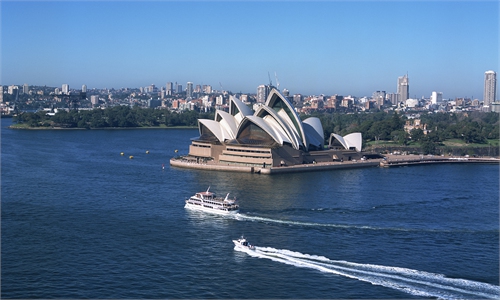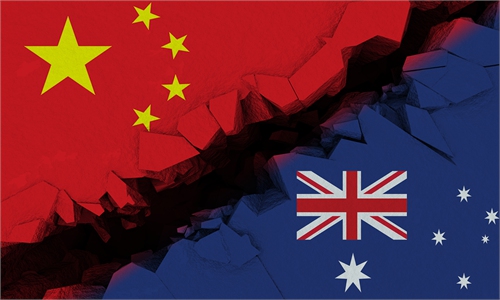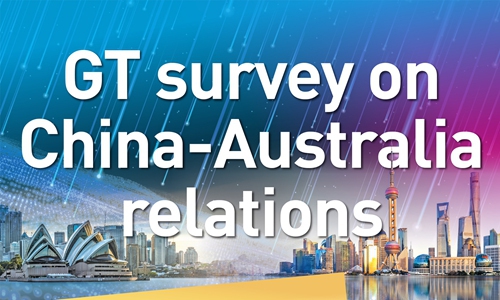50 years after Whitlam’s China visit, it’s imperative for Canberra politicians to learn his political sagacity
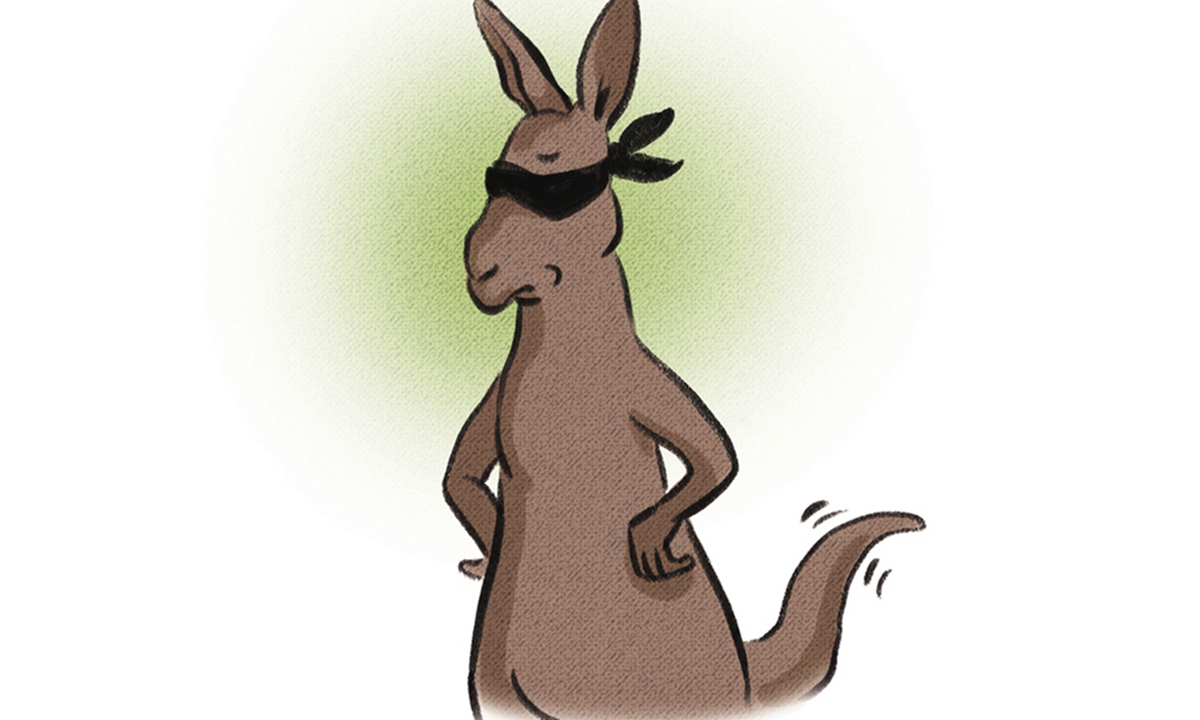
Illustration: Liu Rui/GT
Fifty years ago on July 3, a very special delegation from Australia arrived in Beijing, led by the then Australian opposition leader, Gough Whitlam. This visit was history-making, as called by Stephen FitzGerald, later Australia's first ambassador to China, "an expedition of bravado and exposure, but great political judgment and luck." Canberra at that time was still bogged down in the Cold War trap, stubbornly refusing to recognize the fact that Beijing had already been the sole legitimate government representing the whole of China. Whitlam was lambasted by the anti-China forces Down Under as making Australia a pawn of China, and himself, a "lickspittle Sinophile." It indeed had taken extraordinary political judgment and enormous courage for him to take this ice-breaking step.
Whitlam was a visionary au fait with the changing tides of the times. As early as 1954 he advocated diplomatic recognition of Beijing. His ground-breaking decision to visit China in 1971 was both wisely cognisant of the geopolitical reality of the world, and perceptively mindful of the historic inevitability to proactively engage and cooperate with the rising Asian giant with the biggest population and the greatest potential.
As then Chinese Premier Zhou Enlai pointed out during his mid-night conversation with Whitlam and his delegation on July 5, "All things develop from small beginnings." After Whitlam took office as prime minister following his overwhelming victory in the federal parliament election in 1972, he decisively established formal diplomatic relationship with the People's Republic of China, steering Australia onto a speed track of constructive cooperation with China.
China never forgets Whitlam's pioneering efforts to promote mutual understanding, trust and friendship between the two countries. China always remembers Australia's invaluable contribution to its economic growth and national development. Recently declassified documents of the Australian government show that between 1959 and 1962, Australia increased wheat exports to China in defiance of the US' embargo on the fledgling People's Republic.
Since the late 1970s, China's reform and opening-up have greatly benefited from the Australian investments and joint ventures, which in turn also provided vibrant momentum to Australia's economic growth thanks to China's increasing and enormous imports of energy and mineral, food, dairy and other products from Down Under.
In 1972 the merchandise trade between China and Australia was valued at a meager A$100 million, but in 2020 bilateral trade volume skyrocketed to as high as A$ 229.623 billion, in spite of the negative impacts of the COVID-19 pandemic.
A recent Chinese poll indicates that Australia still ranks among the first as a preferred destination for Chinese students, although Chinese parents are becoming increasingly nervy of the resurgence of racist sentiments and sometimes occurrences of violently verbal and even physical assaults.
It is therefore imperative that today's politicians in Canberra should modestly learn the political sagacity of Whitlam and other like-minded judicious Australian political leaders. A constructive bilateral relationship is the critical keystone to both countries' national interest, which any mature and independent government should do its best to ascertain and safeguard against ulterior motives of some foreign power.
It was thought-provoking that Whitlam's 1972 visit to China was ferociously condemned by Australia's then Liberal government led by prime minister Billy McMahon, who was timorously worried about his imagined vehement reactions from Washington. He criticized Whitlam's late night meeting with Premier Zhou as "an impertinence to the United States, and it is not likely to be forgotten by the American administration." However McMahon was dumbfounded and humiliated when Washington announced that on July 9 Henry Kissinger had also visited China and that US president Richard Nixon would be flying to Beijing in early 1972, on which Whitlam vindictively commented about his denigrators, "They're f..ked."
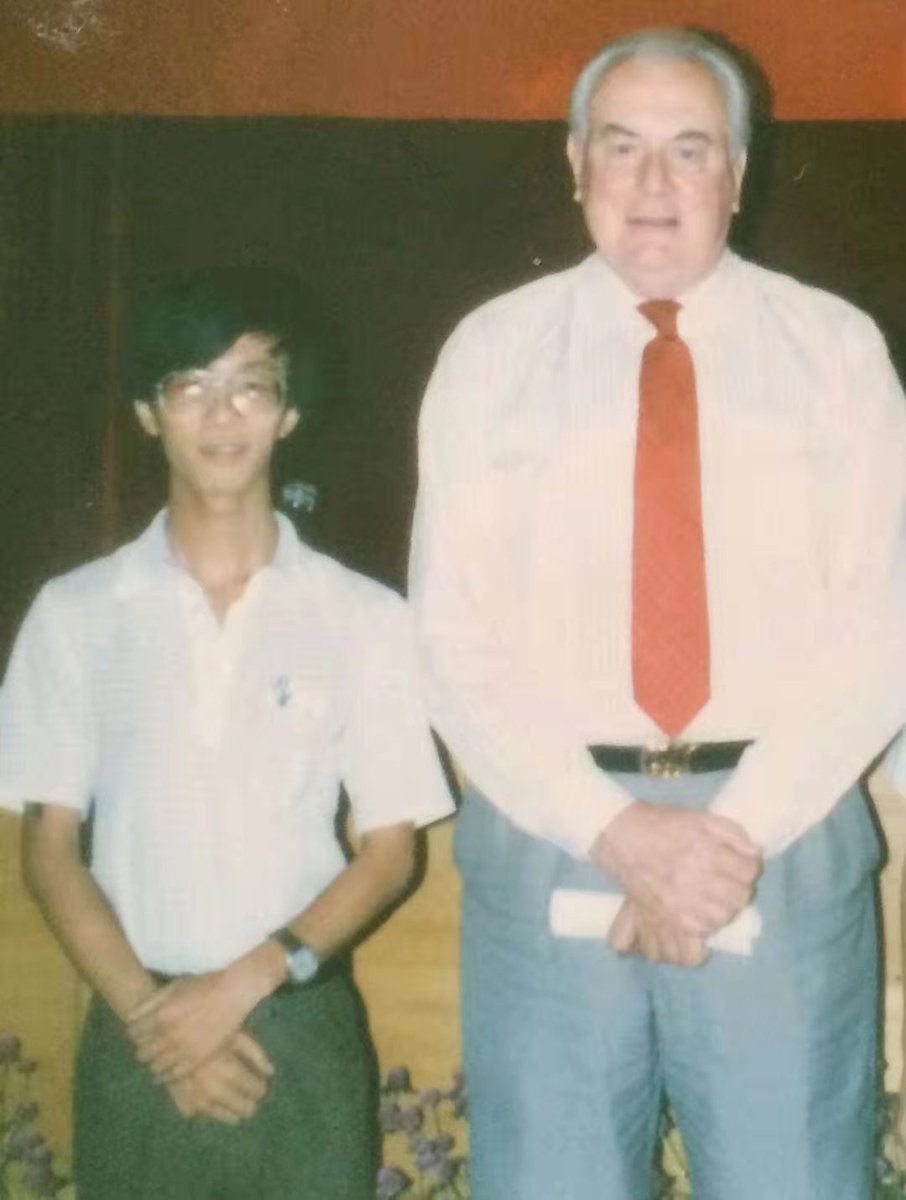
The author Chen Hong with Gough Whitlam. Photo: Courtesy of Chen Hong
The current administration in Canberra needs to come to terms with its relations with China, in which pragmatism overrules ideological bigotry and recalcitrance. Australia's anti-China campaign has reaped in for itself nothing but economic and political losses. Australia's Morrison administration might also be massively stunned to know that "at present Australia's exports of food and beverage to China has dropped from 5.6 percent to 3.5 percent, while those of the other countries in the so-called Five Eyes alliance rose from 22 percent to 35 percent.It is now high time for Canberra to come to grips with the present day international realpolitik, in which China will continue to be one of the biggest players. Meaningless contestation and confrontation with China will only result in Australia's losses while China goes on with its dynamism toward stability and peace and greater economic prosperity.
The author is president of the Chinese Association of Australian Studies, and professor and director of the Australian Studies Centre, East China Normal University. opinion@globaltimes.com.cn
